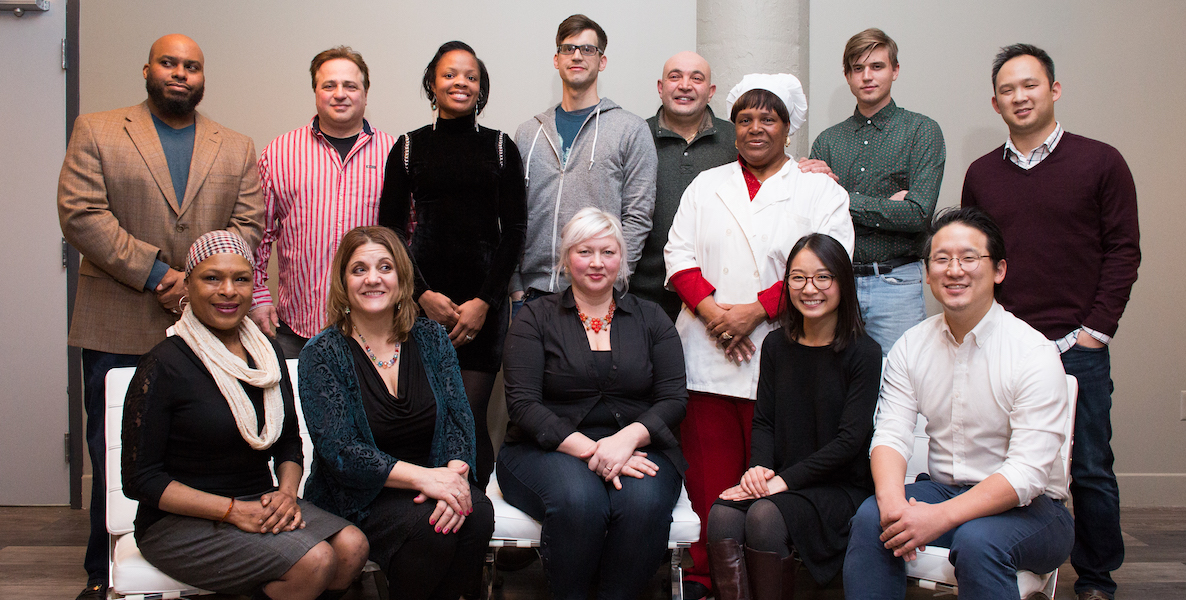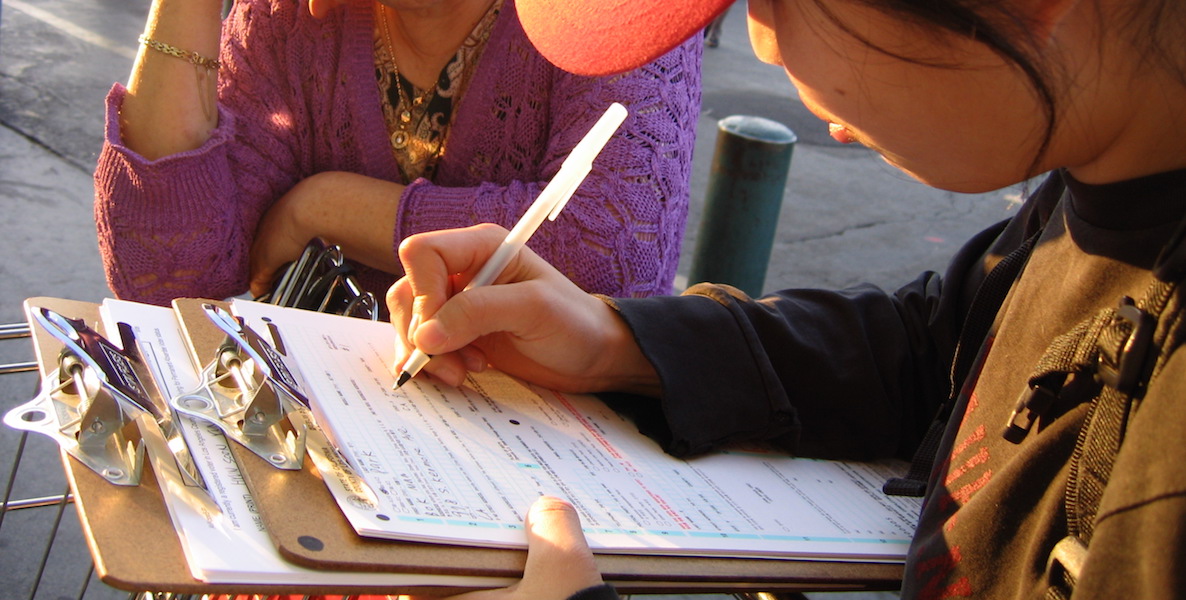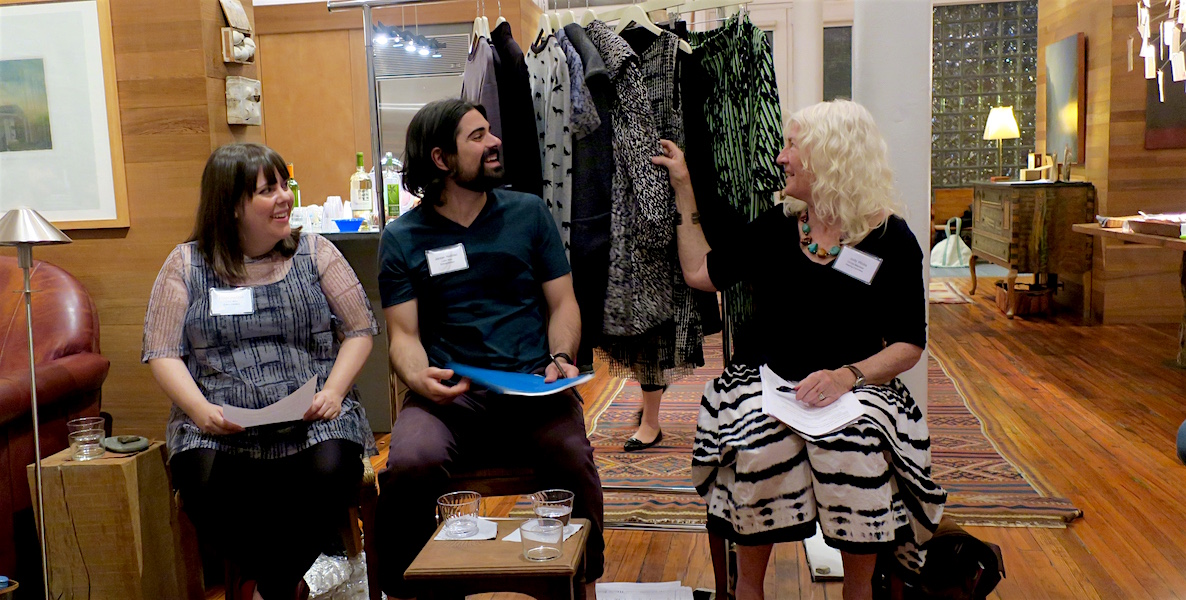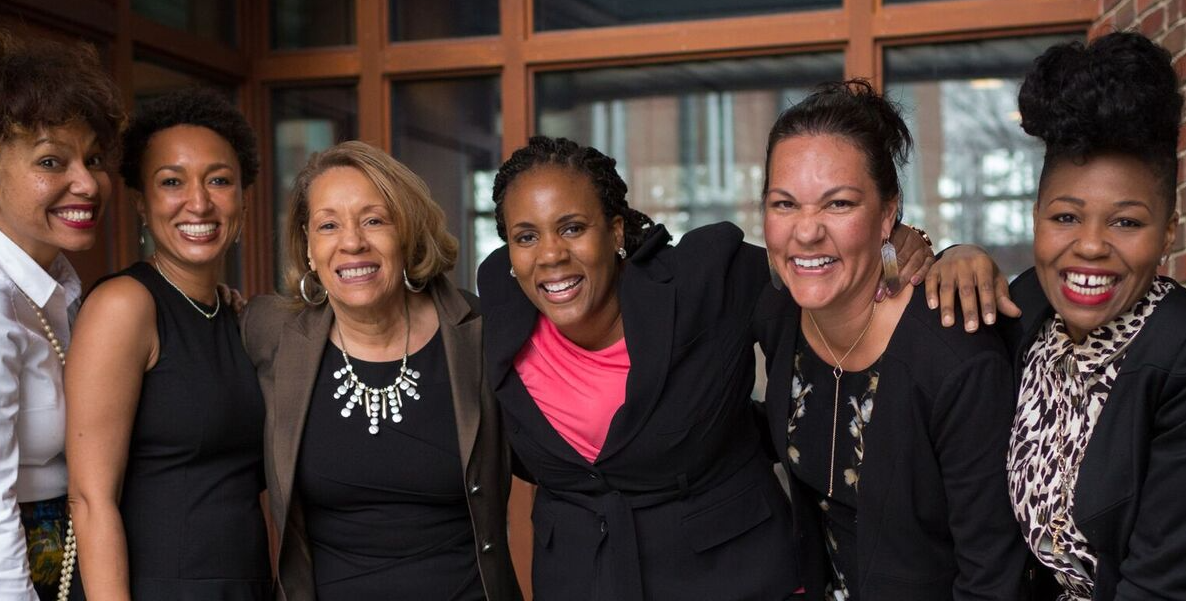The personal care company Sundial Brands got its start in 1991 as a way to get by: CEO Richelieu Dennis, his mother Mary Dennis, and his best friend and college roommate Nyema Tubman were unable to return to their native Liberia because of that country’s civil war. So they started a small, family-run natural hair and skin care products company, selling organic essential oils, shea butter creams and other ointments through street vendors and then from shops in and around Harlem, New York.
![]() Fast forward 27 years, and Sundial had a $240 million portfolio—including its best known brand, SheaMoisture—when it was acquired late last year by Unilever. This would be an inspiring, but standard, rags-to-riches story of American business—but for the fact that Sundial is decidedly not a standard American business, at least not what standard American businesses are like yet.
Fast forward 27 years, and Sundial had a $240 million portfolio—including its best known brand, SheaMoisture—when it was acquired late last year by Unilever. This would be an inspiring, but standard, rags-to-riches story of American business—but for the fact that Sundial is decidedly not a standard American business, at least not what standard American businesses are like yet.
A certified B Corporation, Sundial has throughout its history operated on a model the Dennis family calls “community commerce”: Providing access and opportunity to underserved populations so they can create beautiful lives for themselves and their families and their communities. That has meant sourcing shea butter through fair trade co-ops in West Africa, hosting other local entrepreneurs in their retail shops, making products for women of color that are of high quality, and affordable. And now, as part of the deal with Unilever, it means launching a $100 million investment fund for women entrepreneurs of color.
Emmet Dennis, Richelieu’s cousin and the company’s Chief Community Officer, was in New Orleans this week for the Essence Festival (the Dennis family bought Essence this year) to announce the New Voices Fund, which is getting underway with $20 million from Unilever and $30 million from the Dennises.
He spoke to The Citizen in anticipation of next week’s Citizen Speaks: Business for Good event, where he will appear on a panel with B Lab’s Jay Coen-Gilbert; La Colombe’s Todd Carmichael; and Lisa Skeete Tatum, CEO of LandIt, Inc.
RPS: I want to talk to you about New Voices Fund, and how that came about. But I first I want to know a bit more about how Sundial got to this point.
ED: We started 27 years ago out of survival, but our focus quickly became underserved communities that were looking for solutions to personal care. That’s where we found our beachhead. When we started, nobody was talking about shea butter, natural organic, essential oils. There was the indictment on natural products: They didn’t work and were expensive.

For us, it was, How do we democratize ‘better for you’ personal care? Our personal story was about coming from Liberia, which was trying to aspire to the tenets of democracy, and how that turned out so poorly for us. But here, underserved communities were so poorly served from a personal care and economic aspect.
That turned into an opportunity to serve other underserved entrepreneurs. We started to support other street vendors: In the street vending world, there’s no security. When you run out of your best product, and take down your stand, that’s lost income. We used beepers, and told the vendors to call us when they ran out of product, and we’d deliver it to them out of a used Toyota Previa van. We were able to provide a service and get an additional revenue stream: It was good for our business, and for them.
That was the earliest iteration of the socially-driven business model we call “community commerce.” We have always thought that leveling the economic playing field is a basic human right in this country. There are so many forces against certain pockets in our country, and we always had this framework of offering beautiful products delivered with efficacy, but also delivered at a certain level of economic access.
“We don’t believe in philanthropy,” says Emmet Dennis. “We believe in investing in people. We’re providing access and opportunities to communities such that they can invest in themselves, their families and their communities.”
RPS: How did that model grow with Sundial?
ED: It took us 16 years of being independent street vendors, and then making our own products, and then having our own stores in and around New York because we couldn’t get in to traditional retail. We were black-owned, natural and organic, and it seemed extremely niche to them.
In our own stores, we embraced the local community and provided a space to sell whatever made sense from other local entrepreneurs: books, jewelry, florists, art. That was really community commerce: Building community through commerce.
It wasn’t until 2007/2008 where we got into traditional retail and started to divest from our own stores, so we could serve more people. And then Community Commerce found a new way to iterate around what lots of brands talk about: Fair trade and ethical sourcing, which has always been how we did business.
The largest producers of shea butter come from West Africa and we were working with 500 to 1,500 women in co-ops. But we got frustrated: We always understood, coming from West Africa, that fair trade didn’t move the needle on economic access for individual women. We did a needs assessment in these communities and found lack of access to water, lack of safe work environments, lack of education for women [2.1 million of whom work in the industry], and lack of access to healthcare. The average income for women working in the cooperatives was $184 a year.
“We had already started to invest in entrepreneurs because that’s another way for us to pay it forward. Today I’m announcing the $100 million New Venture Fund to support female entrepreneurs of color,” Dennis says.
So in 2014, we piloted a program in five communities that was able to give us an understanding of how to impact and work through the poverty cycles, to get past them. The first thing we did was scale to 15 cooperatives, so now 16,000 households are benefitting. We’ve seen the average wage go up by 4 to 7 times. School enrollment went up from 37 percent to 98 percent; access to health insurance cards from 40 percent to almost 100 percent. The women also started their own micro-lending programs in the cooperatives: They have already loaned to women within and outside the cooperatives about $250,000, with a 100 percent repayment rate.
It’s a teach a person how to fish way of doing business. We don’t believe in philanthropy; we believe in investing in people. If Sundial were to go away tomorrow, we want them to survive without us. We’re providing access and opportunities to communities such that they can invest in themselves, their families and their communities.
RPS: That’s a pretty inspiring way to conduct business, from New York to Africa, and now back to the United States, with this Unilever deal. How did that come about?
ED: That was an unsolicited interest that came from Unilever after the Bain [Capital] investment a few yeas ago. We sold a minority share of the company to allow us to expand, and started to double down on our story. We launched our first marketing campaign called Break the Walls. We didn’t talk about our ![]() product for the sake of it, we talked about how in the beauty aisle there were these walls, and it was important that people understood Shea was about breaking down those walls. And we shared our community commerce way of doing business.
product for the sake of it, we talked about how in the beauty aisle there were these walls, and it was important that people understood Shea was about breaking down those walls. And we shared our community commerce way of doing business.
Unilever came on strong. Unilever North America President Kees Kruythof and Rich came together and connected on a number of things. And they came up with this manifesto about what it would mean to be true to Sundial if it sold to Unilever.
One, it was important that Unilever embraced our community commerce way of business. Part of the challenge was we’re the only ones doing it; we only use a certain amount of shea butter, so there’s a limit to how much we can support the cooperatives. How can we grow that? By having the number one personal care company look at how they can adopt our fair trade model.
“The revolution must be financed,” Dennis says. “It’s a revolution of our purpose: Allowing people to live more beautiful lives, which means being able to support your family, having access to food, education, to live in whatever community you choose to.”
Two, we had already started to invest in entrepreneurs because that’s another way for us to pay it forward. We’re a very entrepreneurial company, so a lot of entrepreneurs have approached us over the years. One of the things Rich and Kees talked about was launching a formal fund, which we were going to do with or without them. Today I’m announcing the $100 million New Voices Fund, with $20 million from Unilever and $30 million from the Dennis family; the other $50 million we’ll raise from partners and other high capital people. We actually had a soft launch when we stood up newvoicesfund.org, and have eight companies we’re already investing in. I expect after the announcement it will be pretty intense.
RPS: The fund is to support women of color in their business ventures, right?
ED: Yes. There are some really horrific statistics around lack of access to capital for women of color in the country; it’s staggering. Women of color are starting businesses at a faster rate than ever, but also failing. This fund is a beachhead in combatting that challenge.
There are two components. There’s the arm that will deploy capital. And there’s the New Voices Foundation. We know that there is lack of access to capital, but also to resources that help to build a thriving business, which can range from access to experts in the supply chain, merchandising, and professionals who might be able to help with operational guidance.
RPS: Sundial is owned now by Unilever, but does your family still run it?
ED: Yes. Just like Ben & Jerry’s, which Unilever purchased several years ago.
RPS: Do you run the fund as part of your job as Chief Community Officer?
ED: The Dennis family makes up about seven or eight executive leaders—including Rich, his mother, his sister, me—who all have formal roles in the business and “volunteer” our time for other ventures, whether advising on New Ventures, or on Essence, or mentorship.
We feel like we’re living in some really interesting times. Technology has made the world a smaller place; but socioeconomically, we’re in a world where we have to do more for ourselves. We have to recognize that our differences are far less than our similarities. We’re coming together as communities with the intentionality of lifting up each other, having an inclusive approach to living our lives.
And the revolution must be financed. It’s a revolution of our purpose: Allowing people to live more beautiful lives, which means being able to support your family, having access to food, education, to live in whatever community you choose to. We feel that we’re forging a path forward that will lead a north star to point to in terms of economic inclusion.
RPS: Wow, uh, you do a lot!
ED: You know, there is no rest for the blessed.






